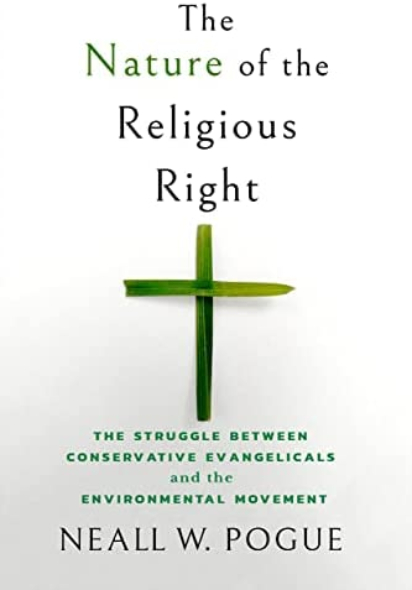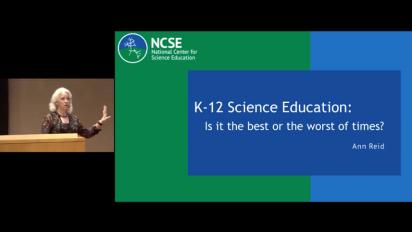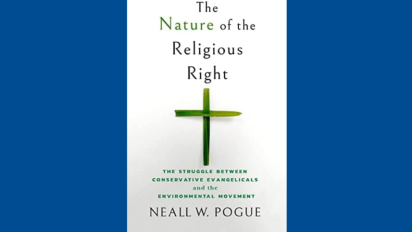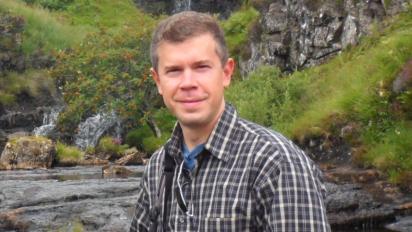[Review] The Nature of the Religious Right: The Struggle Between Conservative Evangelicals and the Environmental Movement
"Today less than a quarter of white evangelicals accept anthropogenic climate change," notes our reviewer, NCSE Deputy Director Glenn Branch.
Around 1970, the year of the first Earth Day, conservative evangelicals in the United States were in general favorably disposed toward environmentalism, which they understood in terms of responsible human stewardship for God’s creation. But then, alienated by a perceived hostility to Christianity in the environmentalist movement and preoccupied by different social issues, they tended to neglect the environmental cause. And after 1992, the year of Al Gore’s Earth in the Balance and the United Nations Framework Convention on Climate Change, they were largely recruited to the cause of doubt and denial. Today less than a quarter of white evangelicals accept anthropogenic climate change. Neall W. Pogue’s The Nature of the Religious Right is a valuable chronicle of the evangelical U-turn. (Read our interview with Pogue.)

Of particular interest is Pogue’s focus on the content of textbooks aimed at students in conservative evangelical classrooms, especially those published by Bob Jones University Press and A Beka (later Abeka) Book. These were designed, he plausibly argues, to relay “common accepted truths” rather than “unsettled and controversial debates among conservative evangelicals” (p. 63). Accordingly, science as well as history and social studies textbooks from these publishers shifted from reflecting a modicum of concern for the environment to disseminating doubt or even denial about the relevant science. A case in point is the doggerel to be found in A Beka’s 1993 high school textbook Science: Order & Reality: “Roses are red, violets are blue / They both grow better with more CO2” (quoted on p. 129).
The Nature of the Religious Right also provides a helpful reminder that (in the words of chapter 7’s title) “it could have taken a very different path.” As Robin Globus Veldman emphasized in her The Gospel of Climate Skepticism (2019), it is not theology alone that drives evangelical anti-environmentalism. Pogue’s examination of the relatively environment-friendly views of such figures of the evangelical establishment as Francis Schaefer, Pat Robertson, and Richard Land provides ample confirmation. Similarly, Pogue highlights the ongoing work of Katharine Hayhoe (a recipient of NCSE’s Friend of the Planet award), Richard Cizik, and the Evangelical Environmental Network to counteract anti-environmentalism among evangelicals, but not with any great degree of optimism. Here’s hoping that he’s wrong!
This version might differ slightly from the print publication.





